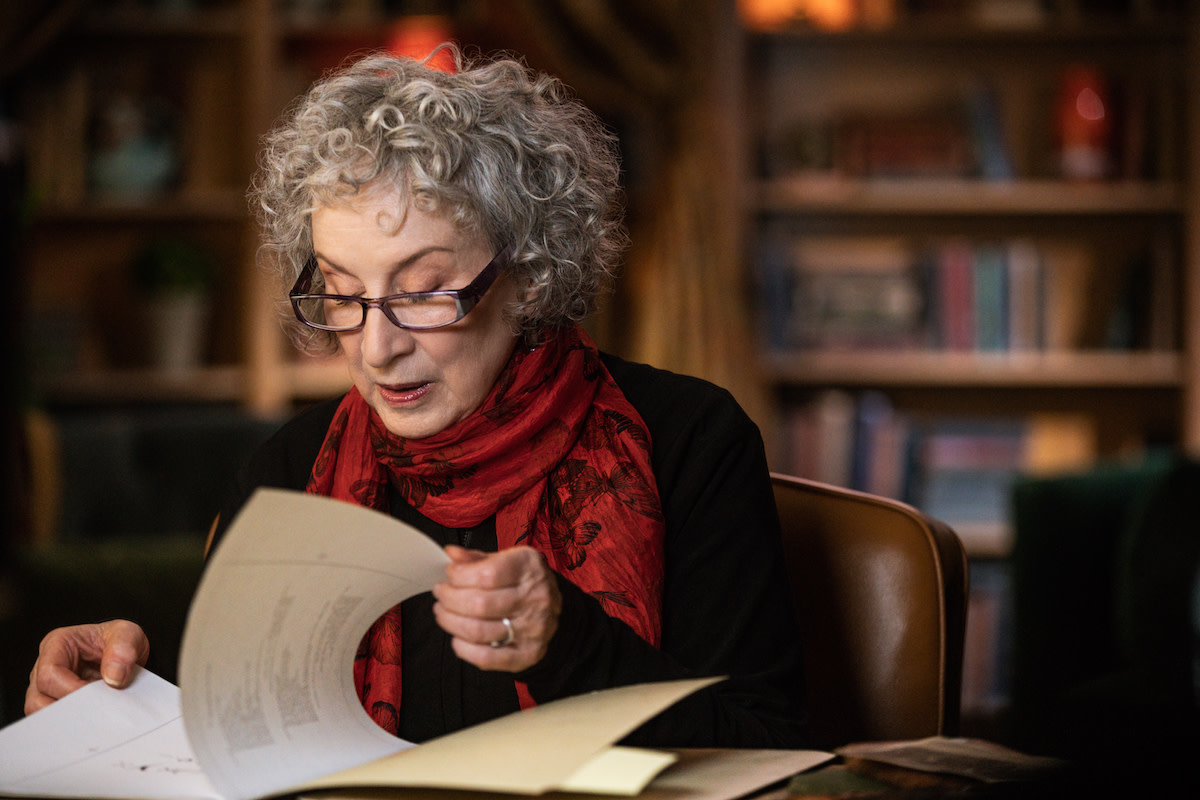Margaret Atwood’s 7 Tips For Writing Speculative Fiction With Creative Writing Prompt
Written by MasterClass
Last updated: Jun 7, 2021 • 3 min read
Margaret Atwood, Booker Prize-winning author of The Blind Assassin, The Handmaid’s Tale, Alias Grace, and Oryx and Crake, is a master of speculative fiction. She offers the following seven tips for developing compelling speculative fiction.
Learn more about writing speculative fiction in Margaret Atwood’s MasterClass.
Learn From the Best
1. Take an Idea From Current Society
Margaret Atwood defines speculative fiction as literature that deals with possibilities in a society which have not yet been enacted but are latent. Any technology or fantastical element in speculative fiction ought to have roots in what our current species can already do, or is on the road to being able to do.
2. Strengthen Your Cause-and-Effect Muscles
By thinking through the what-ifs that drive speculative fiction and generating characters on whom these events will impinge, you will practice the crucial fictional skill of pressurizing your story by shaping events that will cause your characters to act, and reveal themselves.
3. Determine Your World’s Winners and Losers
Utopias describe a world better than the one we live in, while dystopias describe a world that’s worse that the one we live in. But this can be complex fictional terrain because one person’s utopia is another person’s dystopia. And each dystopia may contain a smaller utopia, and vice versa. For whom will your fictional world be a utopia? For whom will it be a dystopia?
4. Research
It may seem paradoxical, but if you are working in either a realist or speculative mode, research will strengthen your project, no matter how far you end up straying from the historical facts. And, depending on your subject, you may wish to create rules for yourself about the world of your book. Such rules may add weight to the material, or change the stakes for your characters or readers.
5. Develop A Strong Visual Language
When creating the dystopia Gilead in The Handmaid’s Tale, Margaret drew on historical references to develop a strong visual language. Her idea for the costumes that handmaids like Offred wear in Gilead came from the ominous figure on the ad for Old Dutch Cleanser, a bonneted woman whose face cannot be seen. The Eye was inspired by the great seal on American money, which is a Masonic eye.
6. Stick To Your Own Rules
Speculative fiction is just like all other fiction: it is not automatically interesting, but rather must be made plausible and accurate within its own set of rules. Margaret Atwood uses Jonathan Swift’s Gulliver’s Travels as an example: Once your book has established a rule that a particular race of horses is virtuous, you can’t write an evil horse character without breaking the illusion of a believable and compelling world.
7. Read The Greats
To get a sense of the range of what speculative fiction can do, Margaret recommends reading these novels and novellas:
- R.U.R. by Karel Capek (1921)
- Brave New World by Aldous Huxley (1932)
- War of The Worlds by H.G. Wells (1897)
- Time Traveler by H.G. Wells (1895)
- Donovan’s Brain by Curt Siodmak (1942)
- Gulliver’s Travels (1726), Jonathan Swift
- 1984 by George Orwell (1942)
- We by Yevgeny Zamyatin (1924)
Speculative Fiction Writing Prompt
Make a list of three societal issues you’re interested in writing about. These could be story ideas, or things you want to incorporate into your fiction. Be as specific as possible: What news story or recent discovery would you like to play out on the canvas of an alternate fictional plane? These need not be global or even heavy in scope; just turning the dial on reality a few notches can raise or change the stakes of your story. Choose one item from the list and brainstorm a group of characters for whom that issue or event will matter. Not every character will be directly involved with the event you’ve chosen; in fact, people with an oblique angle to a societal event are often more interesting subjects for fictional exploration. Whichever character you choose, remember that each of them should feel the reverberations of the event and have to negotiate with its consequences.
If you find yourself feeling writer’s block, try these exercises for overcoming writer’s block.
For more creative writing prompts, find 10 more here.
Learn more about creative writing in Margaret Atwood's MasterClass.
